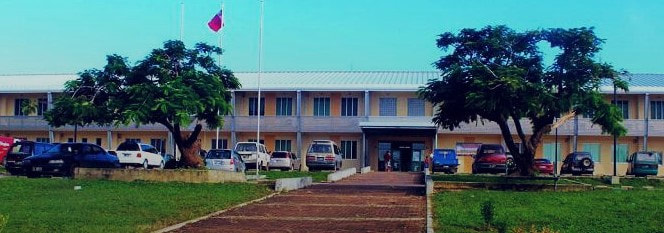GoFundMe Campaign to fund Endoscopy Rooms, Vaiola Hospital Tonga
ANZGITA conducted a very successful GoFundMe Campaign to help fund the renovation of available space at Vaiola Hospital, Tonga's largest, into a dedicated endoscopy area. Thank you to everyone who donated to this cause.
The new room will help Tongan doctors and nurses:
ANZGITA committed A$6,000 to this project and raised more than the goals of A$10,500 to fund the set up of this small endoscopy facility. Every extra donation is one step closer to increasing the availability and standard of endoscopy and quality healthcare services in Tonga.
Thank you for your contribution to help build endoscopy capacity at Tonga's Vaiola Hospital!
The new room will help Tongan doctors and nurses:
- improve endoscopy procedures
- streamline service delivery
- better cope with increasing patient volume
- provide continuity of care in monitoring patient recovery, and
- provide a safer, more positive and comfortable experience for patients.
ANZGITA committed A$6,000 to this project and raised more than the goals of A$10,500 to fund the set up of this small endoscopy facility. Every extra donation is one step closer to increasing the availability and standard of endoscopy and quality healthcare services in Tonga.
- The plans are ready to go!
- ANZGITA trainers are ready to help again as soon as possible post-COVID!
- Industry suppliers are on board with cleaning supplies and equipment
- All that is needed now is a dedicated endoscopy space!
- And you!
Thank you for your contribution to help build endoscopy capacity at Tonga's Vaiola Hospital!
More Information
Endoscopy is a non-invasive procedure for diagnosing and treating gut and other gastrointestinal conditions. In 2018 Vaiola Hospital invited ANZGITA to provide further training to doctors and nurses who had previously attended our training programs in Fiji. Procedures had to be conducted in a storeroom in the theatre area. Subsequently, the volume of procedures continued to grow and when we returned in 2019 advice was provided on how available space could be rearranged to better facilitate a greater throughput of procedures and improve patient care. Since then, the hospital has prepared a plan and budget for this work. Once it is possible post-COVID, we will provide further on-site training, hopefully in a new endoscopy room.
Background
The feedback from our Pacific colleagues is that the built capacity in gastroenterology services since ANZGITA commenced training in 2008 has been life changing for patients. No longer do they need to travel overseas for treatment of most gastrointestinal disorders. During COVID-19 this has meant that most Pacific Island Nations have been able to continue providing services to their people.
Conditions like bleeding peptic ulcers are very common in the Pacific and now they can be generally treated in the Pacific Island Nation in which the patient is resident. There is also earlier detection of GI conditions such as pre-cancerous polyps which could otherwise lead to colon cancer. Intervention for various conditions often comes early enough to avoid invasive surgery which would introduce additional health risks and put more demand on limited hospital beds.
Endoscopy is a non-invasive procedure for diagnosing and treating gut and other gastrointestinal conditions. In 2018 Vaiola Hospital invited ANZGITA to provide further training to doctors and nurses who had previously attended our training programs in Fiji. Procedures had to be conducted in a storeroom in the theatre area. Subsequently, the volume of procedures continued to grow and when we returned in 2019 advice was provided on how available space could be rearranged to better facilitate a greater throughput of procedures and improve patient care. Since then, the hospital has prepared a plan and budget for this work. Once it is possible post-COVID, we will provide further on-site training, hopefully in a new endoscopy room.
Background
The feedback from our Pacific colleagues is that the built capacity in gastroenterology services since ANZGITA commenced training in 2008 has been life changing for patients. No longer do they need to travel overseas for treatment of most gastrointestinal disorders. During COVID-19 this has meant that most Pacific Island Nations have been able to continue providing services to their people.
Conditions like bleeding peptic ulcers are very common in the Pacific and now they can be generally treated in the Pacific Island Nation in which the patient is resident. There is also earlier detection of GI conditions such as pre-cancerous polyps which could otherwise lead to colon cancer. Intervention for various conditions often comes early enough to avoid invasive surgery which would introduce additional health risks and put more demand on limited hospital beds.

